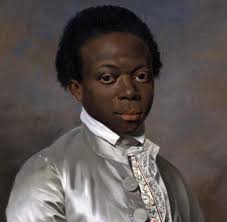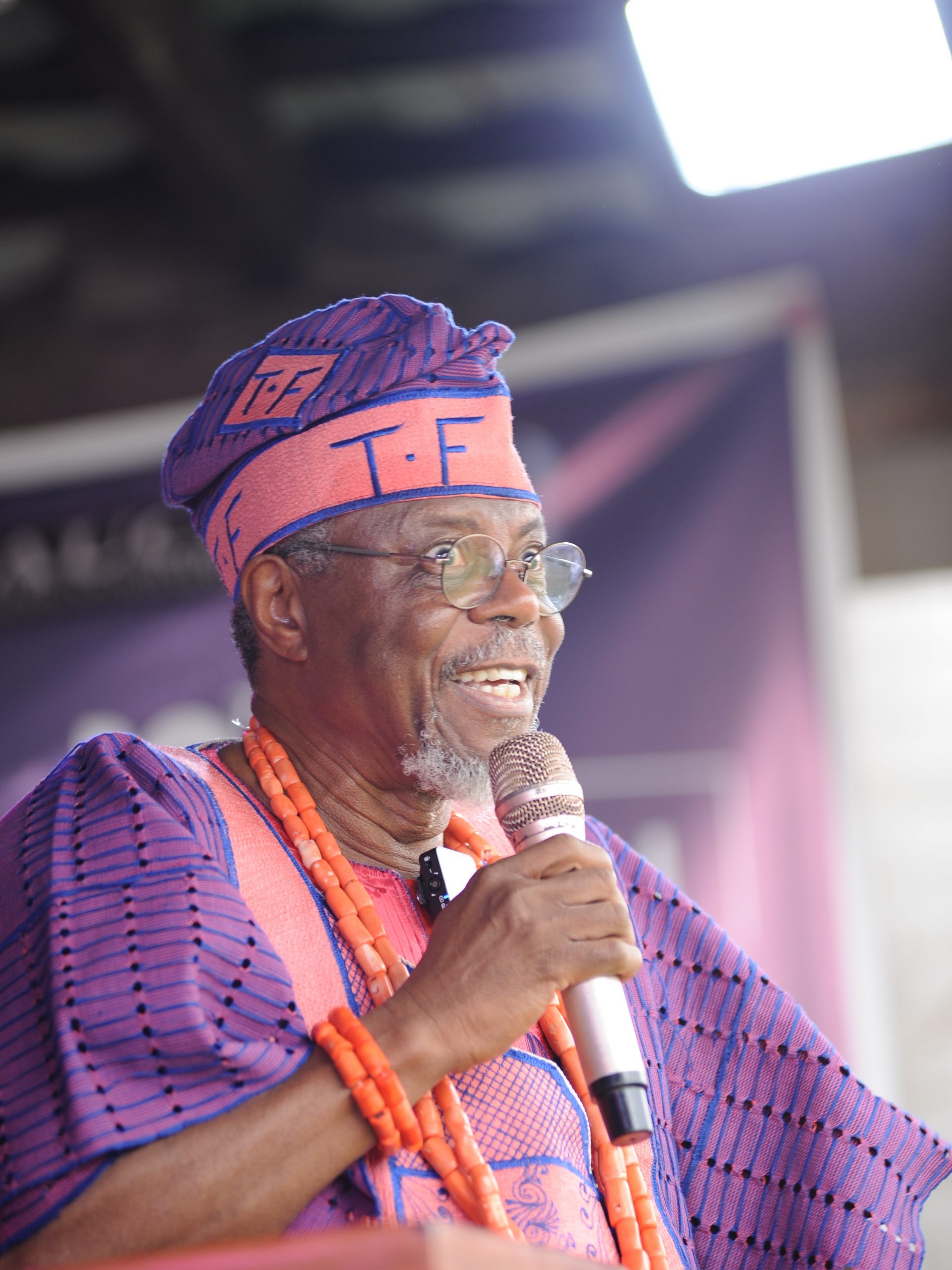By Toyin Falola
The invitation to give the 2024 Anton Wilhelm Amo Lecture at the University of Ghana must start by paying homage to the man whose name honours this annual event. He will be happy in his grave, much happier than when he was alive in the first half of the 18th century, that era of torment and anguish. It is theoretically impossible to discuss Amo outside the context of slavery and racism, both of which shaped his life and death.
When conversation about racism takes hold, it often tends to be such that it blots out of our minds recollections of historical landmarks. To be fair, devoting attention to these often infinitesimal histories does supply a racist with the rhetoric for excusing his more heinous crimes. Yet, if all we seek to do is uncover astonishing moments from the past for purely academic purposes, then there abound narratives of the contributions of individuals from marginalised groups to the typically exclusionary intellectual territories of their oppressors. One of these is the venerable Amo Anton Wilhelm, a groundbreaking but under-interrogated philosopher in 18th-century Germany.
Amo (c. 1703-1759) was a trailblazing African philosopher, intellectual, and educator who defied the norms of his age. Born in West Africa, Amo was enslaved, transported to Europe, and later became the first African to study and teach philosophy at German universities. Amidst the Enlightenment, Amo’s remarkable journey and groundbreaking works challenged prevailing notions of race, identity, and knowledge. His philosophical contributions, though largely forgotten, have been rediscovered, shedding light on the complex intersections of African, European, and diasporic thought. This article unravels Amo’s fascinating story, reclaiming his legacy as a pivotal figure in intellectual history.

The slave-turned-scholar’s life began in West Africa around 1700 amidst the complex cultural tapestry of the Gold Coast (present-day Ghana). Born into a region of rich traditions and trade networks, Amo’s early years are shrouded in mystery—his familial roots are difficult to determine, and historical documentation of his life does not extricate him from his enslavement to a time before. What is known is that at a tender age, he was forcibly taken from his family and community, enslaved, and transported to Europe. He arrived in Amsterdam, Netherlands, in 1707 and was gifted to the Duke of Wolfenbüttel-Braunschweig, Anton Ulrich. The Duke, a patron of arts and education, supposedly recognized his intellectual potential and provided him with an extraordinary opportunity.
Amo received a comprehensive education at the Duke’s expense, beginning with basic literacy skills and progressing to theological and philosophical studies. This account is contested in literature as it portrays the relationship with the nobility as charitable. It has been argued that Amo was not gifted to the Duke, a German prince, neither was the household without a history of possession of African slaves or interaction with the institutions behind their trade, such as the Dutch-West Indian Company. Before Amo, others were said to have served as servants and potentially exotic human property in the prince’s estate, bolstering his esteem in German high society.
This re-examination certainly upends the worshipful, appreciative light in which references to Anton Ulrich’s impacts on Amo were written. Nevertheless, he was baptised, educated, and in 1727, able to enrol at Halle, a relatively new university that was already popular with its philosophical inquiry. It was here that he studied philosophy and jurisprudence. This evident academic prowess earned him recognition, and he became known as “the African.”
In 1730, Amo obtained his Master of Arts in philosophy and transferred to the University of Wittenberg, now merged to become the Martin Luther University of Halle-Wittenberg in the present day, where he studied pneumatology (psychology), physiology and medicine. It is possible that his conversion to Christianity was influential in his intellectual pursuits. Notably, his receipt of the award of a Master’s degree was attended by the Ulrich family in person of his son, August Wilhelm. Historians believe that this contact was ascertainably sustained till a few years later when his direct handlers died. In 1733, Amo qualified for another Master’s degree, following this with a doctoral dissertation— “De humanae mantis apatheia” (On Apathy in the Human Mind)—in 1734. His achievements in the scholarly environment were remarkable as, despite the different cultural environment, he thrived solidly, mastering multiple languages, including Latin, Greek, Hebrew, and German. He also engaged with prominent thinkers, such as Christian Wolff and Alexander Gottlieb Baumgarten, attesting to his profound cerebral capacities. Amo contributed a unique perspective to the world of philosophy, merging African, European, and Christian thought. Naturally, his experience of slavery played a role in defining his world views. He navigated complex cultural identities, confronting the contradictions between Enlightenment ideals and the harsh realities of slavery and racism. As he paved a path for himself into academia, Amo withstood different challenges, refusing to submit to the inherent downsides of living a life distant from his native kin.
The publication of his earlier Disputation De jure Maurorum in Europa, or “On the Law of Moors,”earned him a professorship in philosophy, marking a watershed moment in the history of philosophy. This remarkable achievement made him the first African to hold a professorship at a European university, well before others in a deeply stratified environment. The exact year he acquired professorial status appears disputed, but it is known that he held lectures at Halle University from 1736 before moving to the University of Jena in 1739. During his tenure, Amo taught philosophy, focusing on logic, metaphysics, and philosophical methodology. His lectures drew students from across Germany, who were attracted to his unique blend of traditional European thought and innovative African perspectives. Amo’s teaching style was characterized by his emphasis on critical thinking, rigorous analysis, and intellectual curiosity. Amo’s academic output during this period was equally impressive. His magnum opus, “On the Impassivity of the Human Mind” (1734), presented a nuanced critique of Cartesian dualism, challenging the prevailing views on the nature of mind and body. This work demonstrated Amo’s mastery of European philosophical traditions and his ability to engage with complex ideas.
In his “Treatise on the Art of Sober and Accurate Philosophizing” (1738), Amo outlined a comprehensive philosophical methodology, emphasizing the importance of empirical observation, logical reasoning, and intellectual humility. This treatise showcased Amo’s commitment to philosophical rigour and his desire to promote critical thinking.
Amo’s interactions with prominent thinkers of his time further underscored his intellectual stature. His engagement with Immanuel Kant, for instance, could have contributed to Kant’s development of transcendental idealism. Amo’s critiques of Christian Wolff’s rationalism sparked important philosophical debates, demonstrating his ability to engage with leading intellectuals on equal terms.
Despite these achievements, Amo faced significant challenges. Racism and prejudice were pervasive, with some colleagues questioning his intellectual capabilities due to his African heritage. Financial struggles also plagued Amo, as his patronage relied on the Duke’s support, which eventually waned. There are equal accounts that indicate that the impossibility of a romantic relationship with a German lady burdened him.
These difficulties drove him to depart Jena in 1740, following which documentation of his subsequent years became scant. His woes might have begun with the passing of the sons Anton Ulrich August Wilhelm in 1731 and Ludwig Rudolf, his younger brother, in 1735, who had both assumed stewardship for the Africans. The death of his friend, Johann Peter von Ludewig, Chancellor of Halle, in 1742 further complicated his problems. However, it is believed that his return to his African homeland was around 1747, marking the end of his decades abroad.
Amo’s academic legacy is profound. He pioneered African-European philosophical dialogue, challenging Enlightenment assumptions about race and knowledge. His work inspired future generations of African intellectuals, demonstrating that African perspectives could enrich European philosophical traditions as opposed to the norm of the other way around.
Amo Anton Wilhelm’s philosophical works, particularly his “On the Impassivity of the Human Mind” (De Impassivitate Mentis Humanae, 1734) and “Treatise on the Art of Sober and Accurate Philosophizing” (Tractatus de Arte Sobrie et Accurate Philosophandi, 1738), demonstrate his nuanced engagement with 18th-century European philosophical traditions. Amo’s critique of René Descartes’ mind-body dualism, as outlined in “Meditationes de Prima Philosophia” (1641), challenges the notion of a passive mind. Amo argues that the mind actively engages with sensory experiences, contesting Descartes’ assertion that the mind is entirely separate from the body (res cogitans vs. res extensa). This critique resonates with contemporary debates on the nature of consciousness. Also, his theory of sense perception, influenced by Aristotelian empiricism, posits that knowledge derives from sensory experiences. He contends that the mind interprets sensory data, actively constructing our understanding of reality. This theory anticipates later philosophical developments, such as Immanuel Kant’s transcendental idealism (Kritik der reinen Vernunft, 1781).
He further introduced the concept of “sensitive knowledge” (cognitio sensitiva), emphasizing the role of sensory experience in knowledge acquisition. He argues that knowledge is derived from both rational reflection (cognitio rationalis) and sensory observation. This concept bridges the gap between rationalism and empiricism, engaging with debates sparked by philosophers like Gottfried Wilhelm Leibniz and John Locke. However, while his works impacted the products of reputable German scholars, his philosophical contributions mysteriously faded into the background until the 20th century, when scholars like Jacob Emmanuel Mabe and Kwasi Wiredu rediscovered his works.
Recent studies have reevaluated Amo’s significance in the history of philosophy, recognizing his innovative perspectives on knowledge, reality, and African-European philosophical dialogue. It is equally important to emphasize that there appeared to have been subtle selectiveness in the attribution of certain philosophical thoughts to an African professor, hence the scarce mention of Amo in the field. If anything, a variety of thoughts in which Amo had previously laid foundational arguments were attributed to native European philosophers. Plagued, therefore, by the challenges of integration into a society that could only go so far to accommodate him, the “African Father of German Enlightenment” pleaded his way back to Africa via the Dutch West Indian Society.
At home, he seems to have been disillusioned by the lack of intellectual circuits with which he could relate, corralling him into an isolated life. He is reported as having relocated to the Dutch fort in Axum, Ghana, where he would later die in 1753. Nevertheless, Amo’s early impacts as an African thinker are incontestable. He had written earnestly on the rights of slaves nearly two centuries before rights movements emerged across Europe and America to challenge social injustices. His philosophical outputs also displaced the supremacist idea of white intellectual superiority as he adeptly learned and debated against very influential submissions of its most revered thinkers. Amo’s life, though short, was an example of defiance in an age that had yet to adapt.
PS: This is the second in the series on the 2024 Amo Lecture. I am grateful to Dr. Grace Diabah, the Director of MIASA, who facilitated the event in collaboration with the Department of Philosophy and the Institute of African Studies, University of Ghana.


